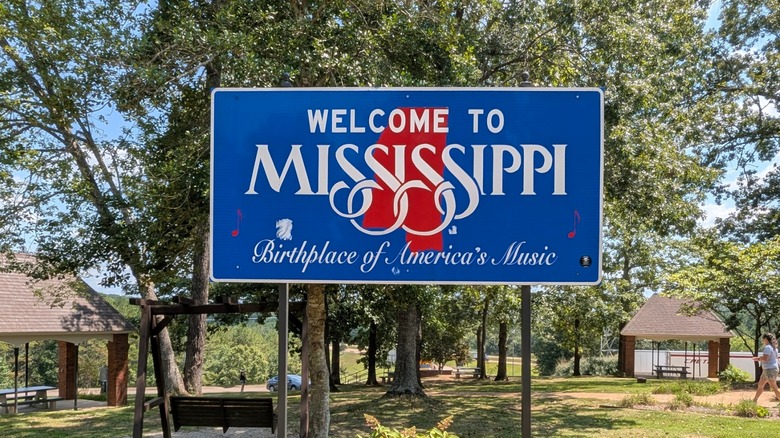The US State With The Lowest Average Social Security Payments
According to 2023 data from the Social Security Administration via CNBC, Mississippi is the state where the lowest average Social Security benefits are paid to retirees, with the average Social Security payment in the state coming in at $1,756 a month. This could be cause for concern if you're among the cohort of Americans unsure of the longevity of your retirement nest egg. Social Security benefits, in particular, are likely to be on your mind if you're worried about the possibility of running out of retirement savings. Particularly when you consider, per a September 2025 Bankrate survey, that three out of five Americans believe they haven't saved enough for their retirement, and 64% of Americans 55 years older seem the least confident that they've saved enough.
With that said, Mississippi isn't necessarily a good or bad choice just because the average Social Security payment is the lowest. Remember that ultimately, Social Security income at every age for retirees is determined more by when you retire as opposed to where. For instance, taking your Social Security benefits at the earliest age, 62 years old, could cost you anywhere from 25% to 30% of your overall benefit. Plus, if you enjoyed a career of higher earnings in a different state, your Social Security might ultimately go further in a state with a lower cost of living, like Mississippi.
Getting a better idea of Mississippi's retirement picture
According to the Social Security Administration (SSA), the average monthly benefit payment for retired workers across the entire U.S. in August 2025 was just over $2,000. This means Mississippi's average is roughly $250 below the national average. However, this isn't necessarily that surprising when you consider it's one of three states paying workers the lowest median salaries in the U.S. While lowest salary and lowest Social Security payment aren't exactly selling points for the state, there are a few things that may balance out the negatives.
For starters, according to RentCafe, Mississippi's cost of living is 10% lower than the national average across the board. Food, transportation and healthcare are all 4% to 8% lower than the national average, while utilities are 11% lower and housing is a whopping 26% cheaper. If that's not enough, even though the average Social Security benefit is lower, you will actually keep more of it in your pocket thanks to the state's tax exemption policies. This exemption not only covers Social Security, but all other retirement income including pensions, your 401(k), and IRAs.

